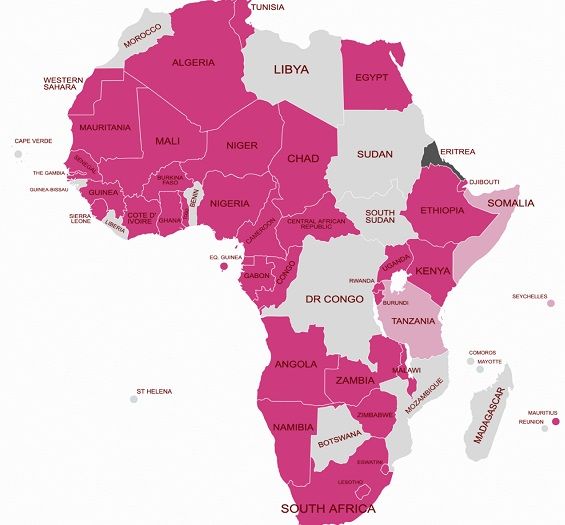
Making the continental free trade area work is a mountain before us – traders don’t realise this

It is now one year since the Africa Continental Free Trade Area was supposed to start with tariff-free trading, an event that was much publicised with two container loads of goods shipped from Ghana, but that was also the last of any free trade.
The Africa Continental Free Trade Area reminds me a lot about the ostrich industry in Namibia. Here we had a completely new commodity with a great future until the government started interfering around 2012 with grandiose ideas of creating an ostrich production hub in the south. But it was all centrally planned and like all communist systems, it went the way of the dodo.
The Africa Continental Free Trade Area is a noble undertaking. It provides a framework for trade liberalisation at a time when African countries can generate very substantial additional revenues by trading with each other instead of Europe, or the US or China. But the road to get to a point where the benefits are tangible and substantial, will probably extend beyond the lives of most current Africans. Intra-African trade will only grow when local companies see the benefit in their income statements.
For the Free Trade Area to come into force, it required an FTA agreement ratified by at least 24 countries. This happened on 30 May 2019 and barely a month and a half later, the operational phase was launched, setting in motion the many cogs needed to make a scheme this size start turning.
According to the Trade Law Centre (Tralac) in South Africa, by September last year, the number of countries that have deposited their instruments of ratification with the African Union Commission, has grown to 38 with another three pending, despite the immense drag from Covid-19. This shows that a sizeable majority of all members of the African Union has put in place the instruments and structures to take the FTA from a concept to a functional entity.
But Tralac, in their December 2021 bulletin, also highlights a number of issues indicating that the African Continental Free Trade Area is at this stage still just an idea and that many years and many multilateral agreements will still be required before it becomes a real thing.
So for those many pundits who have jumped on the AfCFTA bandwagon, there are some major surprises hiding in the bushes. And perhaps the biggest surprise of all will be when, in twenty years from now, the eager traders who are waiting for tariff reductions, find out that so many committees and experts group are still negotiating about nitty gritty points in yet another agreement.
Take us for instance. We are part of the Southern African Customs Union. It means that we have to abide by the rules of the customs union and that our local traders may not do anything to harm the interests of all the other members. We, and the other small SACU members, enjoy a cut from the customs union’s revenue far above our actual contribution to trade.
There is simply no way that we can leave the customs union since those so-called SACU transfers equal roughly one third of our government’s annual income. Were we to abandon SACU, we would basically bankrupt ourselves overnight.
One finds similar situations in West and in East Africa where one dominant player, for all intents and purposes, controls the fortunes of a number of smaller players in regional customs unions. In practice it means that these smaller members have very little say and that the dominant member determines the fate and the future of all members in the customs union.
Now consider how long and protracted the process is to reach an agreement at customs union level and then project this to the process that will be required to reach trade agreement amongst all members in all regions.
I do not want to say it is an impossible task but I definitely want to caution all those who are running away with AfCFTA that it will take many, many years before we have a modicum of free trade, and then only within the regional blocks. Getting to the point where the regional block have actually liberalised trade across the entire continent, may take as long as fifty years.
This is not cold water on the idea of a continent-wide free trade area, it is just a reality check and to downtune the rhetoric of people who want us to believe that the free trade area is already a reality and functioning. It is not.
As Tralac stated: “The complexities were underestimated. The interim AfCFTA trade in goods did not materialise.”
AfCFTA Ratification map courtesy of the Trade Law Centre.











































